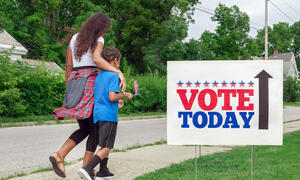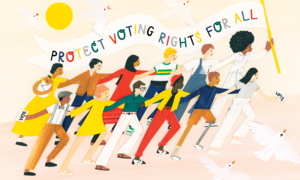Dear Young Person, You Have an Important Role in Our Democracy
Engaging in action to make positive change in our communities is the next step beyond learning about voting rights and civic responsibilities. When young people recognize the possibilities of power and engagement, they can become change agents in their communities. These LFJ resources for young people provide tips for becoming involved and encouraging friends and family to vote.
- A Letter to Young People on Your Power to Effect Change
- Promote and Model Civic Responsibility
- Five Myths About Voting



